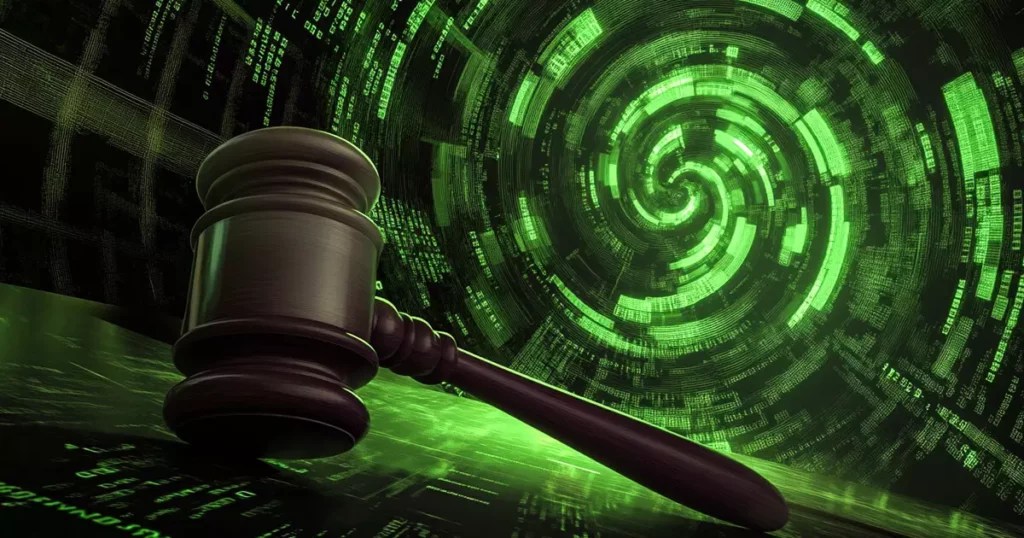The recent ruling by a federal judge regarding the legal status of software code in the cryptocurrency realm has sent ripples through the industry and raised pressing questions about the intersection of technology, law, and individual freedoms. On September 26, Judge Katherine Polk Failla from the Southern District of New York delivered a verdict that disqualified crypto software, particularly code used in protocols like Tornado Cash, from First Amendment protections. This decision is pivotal not only for Tornado Cash but for the broader landscape of cryptocurrency regulation and developer liability.
Judge Failla’s verdict has significant ramifications for developers of cryptocurrency software. The judge stated that while the underlying code may possess expressive qualities akin to free speech, its practical application—specifically in facilitating money transmission—excludes it from constitutional protections. This judgement sets a controversial precedent, categorizing crypto protocols as money transmitters under the Bank Secrecy Act (BSA), regardless of whether developers control the flow of the funds.
As the case of Tornado Cash’s developer, Roman Storm, heads to trial on December 2, the stakes are alarmingly high. Storm is facing severe accusations, including money laundering and running an unlicensed money-transmitting business. The ruling could substantially affect not only Storm’s defense but also the operational frameworks for all crypto developers, who may be drawn into legal repercussions by merely creating software that enables monetary transactions.
The flexibility of the law is increasingly being challenged by the rapid evolution of technology, and cryptocurrencies are at the forefront of this battleground. Judge Failla’s logic suggests a broader interpretation of what constitutes a money transmitter, potentially applying to numerous decentralized finance (DeFi) platforms. This sets a new precedent: even platforms that provide services such as Tornado Cash and Samourai Wallet—both implicated in facilitating cybercrime—can be classified as violators of financial regulations purely based on their operational functionality.
Critics of the ruling warn of its chilling effect on innovation, fearing that developers will hesitate to create new systems or technologies if held accountable for the misuse of their creations. The ruling also raises vital questions concerning the accountability of software developers in a world increasingly governed by complex algorithms and smart contracts.
The response from the crypto industry has been overwhelmingly negative. Amanda Tuminelli from the DeFi Education Fund remarked on the potentially catastrophic implications for developers’ liabilities across the board. The worry is not just limited to Tornado Cash but extends to any cryptocurrency and blockchain-related software. With innovations occurring daily in this sector, this ruling could inadvertently stifle creativity and risk-taking—cornerstones of the technology industry.
Moreover, the concerns voiced by legal experts like Jake Chervinsky highlight a crucial and perhaps unsustainable tension between regulatory compliance and technological freedom. Chervinsky aptly characterizes the ruling as an assault on developer freedoms, indicating that many in the industry foresee a bleak future for software innovation and protection if this precedent stands.
As Storm’s trial draws closer, appeals are likely to be filed, potentially reshaping the case’s implications. The ambiguity of existing financial laws and the rapid adaptation of technology demand ongoing discussions among regulators and legislators. This ruling provides clarity on specific legal frameworks but underscores the urgent need for a more adaptive legal system that can navigate the complexities of groundbreaking technology without quelling innovation.
Ultimately, the ruling by Judge Failla acts as a litmus test for how the US legal system will accommodate the burgeoning digital economy. Stakeholders across the spectrum—developers, investors, and regulators—will be closely monitoring the fallout from this pivotal case as it unfolds, recognizing that its implications may very well redefine the future of cryptocurrency and software development at large. The intersection of law and technology is fraught with challenges, and how we navigate this terrain will determine the health and growth of nascent industries for years to come.


















Leave a Reply